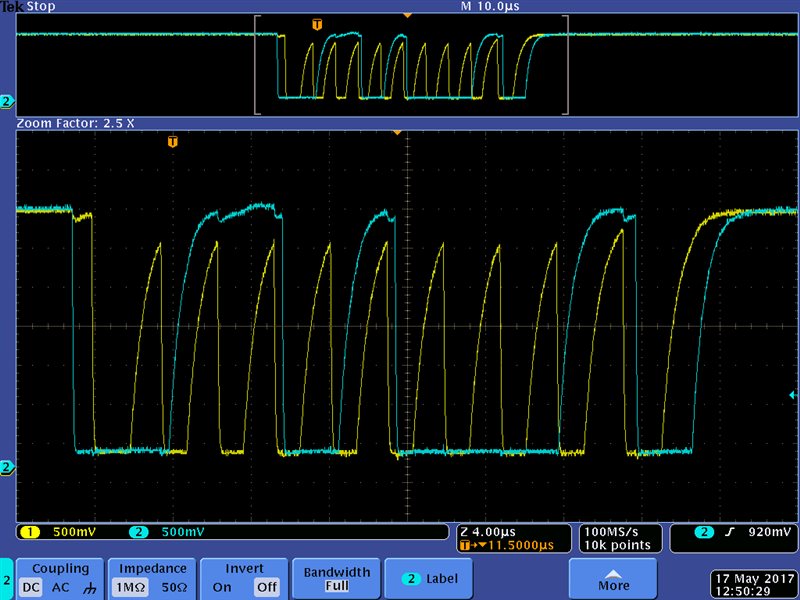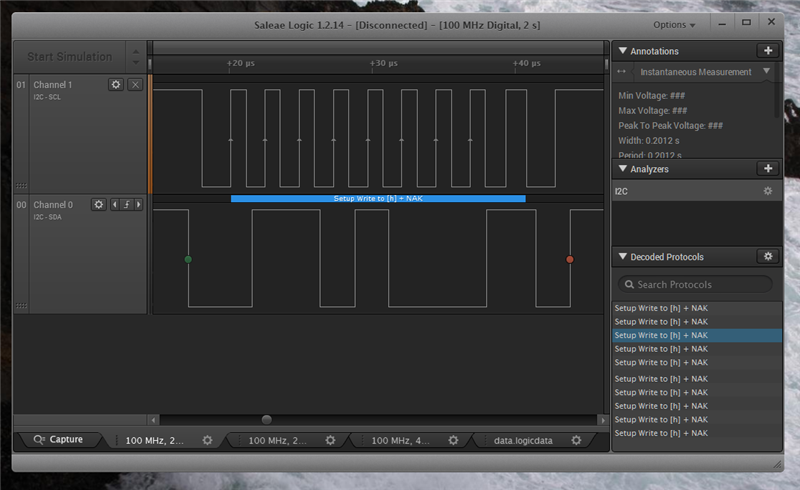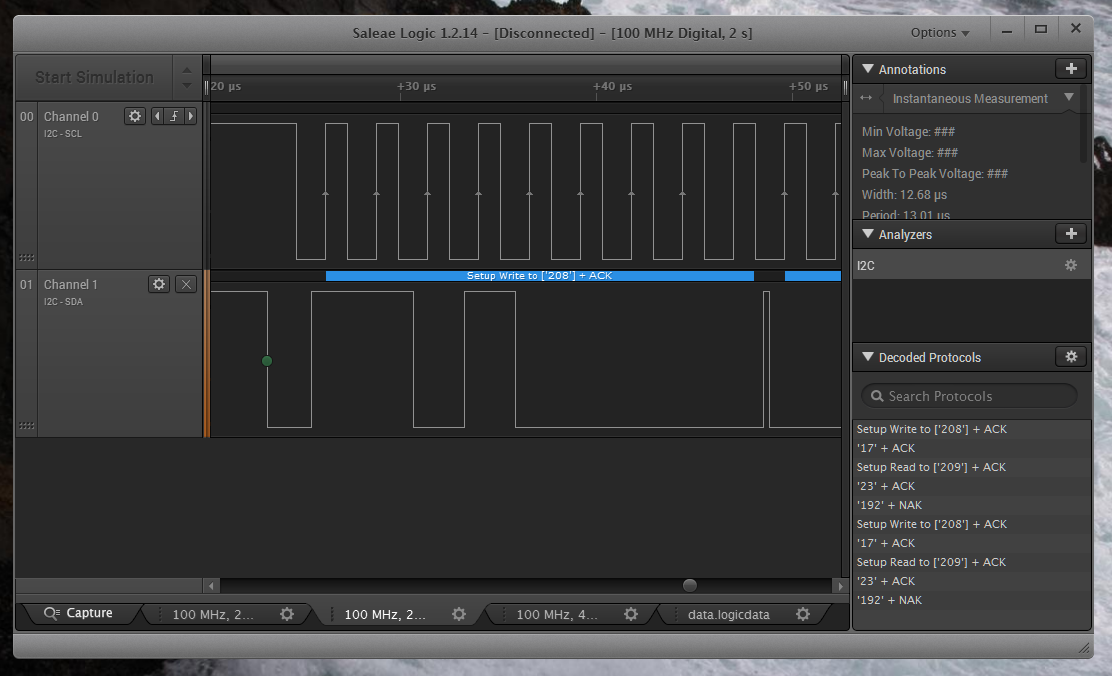Tool/software: TI-RTOS
Hello,
I am having trouble getting i2c working in sensor controller studio. Every time I do "task testing" i2cStatus is always 0x0001.
Here is my code in arduino where I prototyped, I am now trying to get it working in SCS: 
As you can see, it works perfectly in arduino.
Here is my SCS project: led_blinker_launchpad.zip
Please ignore the commented out code and title of the project. It's the LED example project I am modifying while following the code found in the I2C light sensor project and the i2c documentation for SCS..
Please ask questions if I forgot to say something, I will try to explain best I can.






